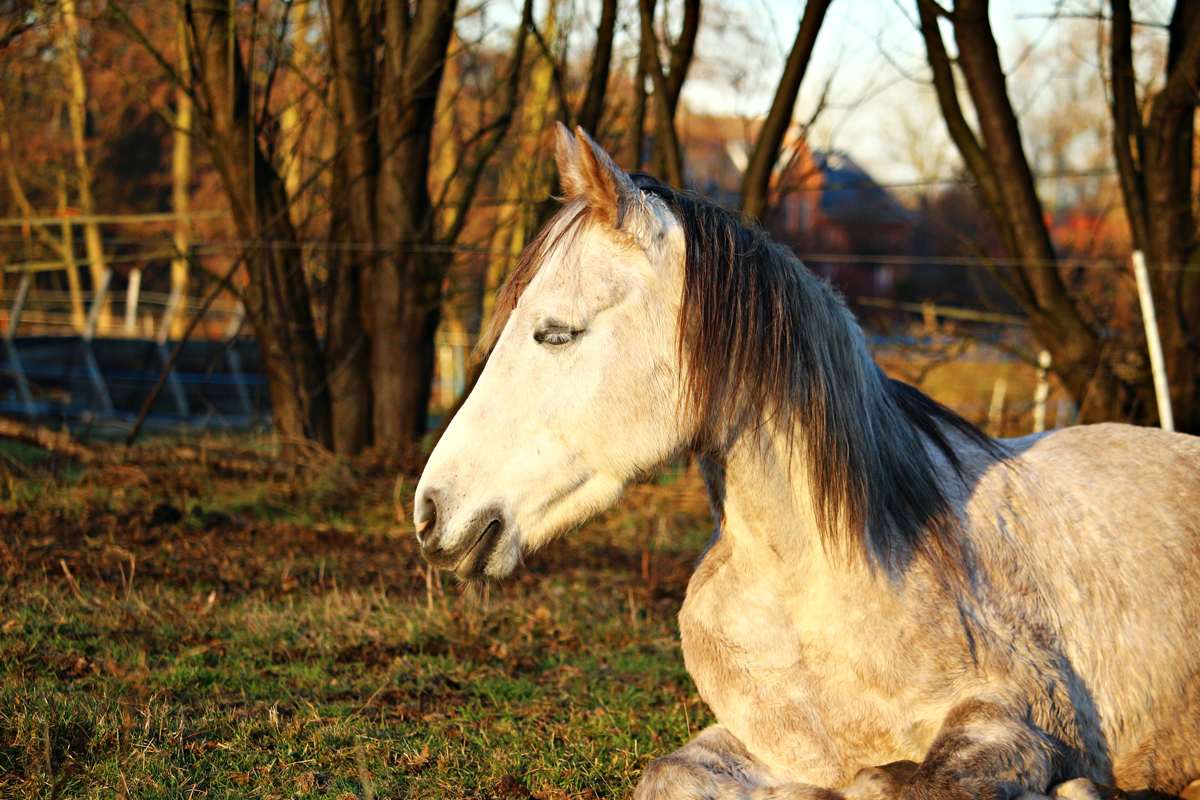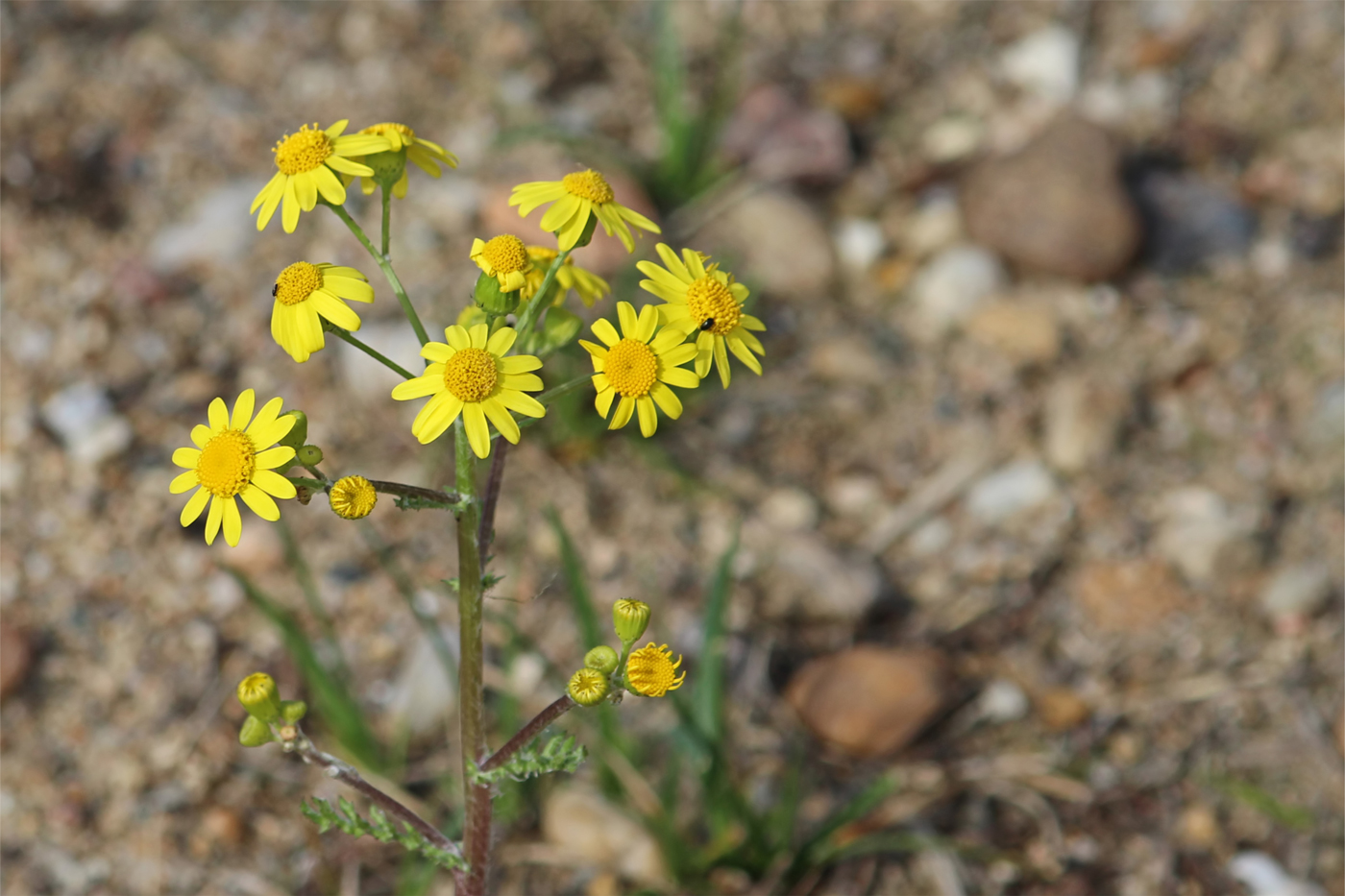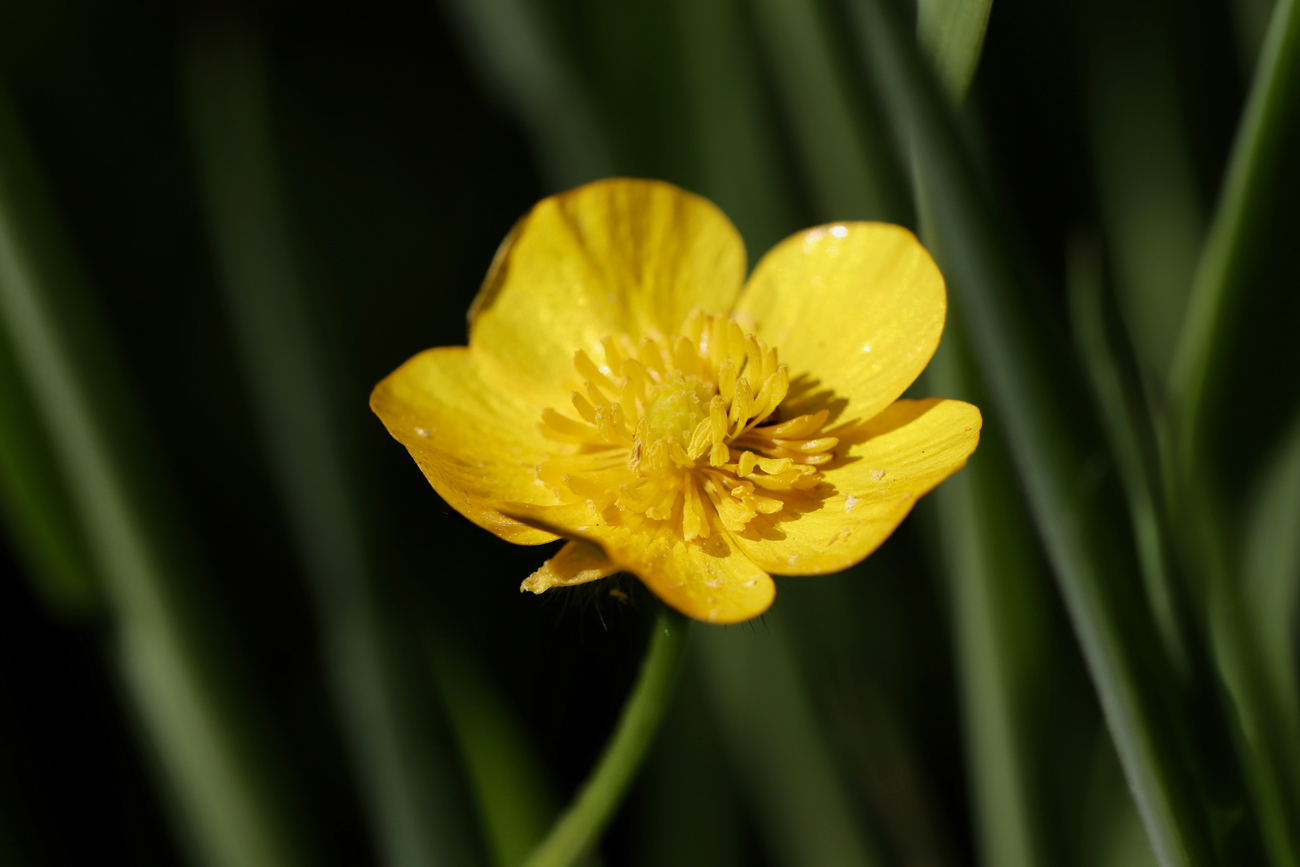Whether they’re out in the fields or trekking through the countryside, horses can be at risk of poisoning. It’s a sad fact that a wide range of substances, both manmade and at large in the natural world, can lead to a variety of ill effects in horses, from indigestion and lack of energy all the way through to grave illness and even death.
In this article, we’ll take a closer look at equine poisoning – what causes it, what symptoms to look out for if you suspect your horse has been poisoned, and how to protect yourself and your animal with horse rider insurance.
How do we define poisoning?
A poison is any substance that irritates, changes the metabolism or damages body tissue. Horses are 'trickle feeders', meaning that they graze for most of their waking hours.
Couple this with the fact that they spend a large proportion of their time out in the open air, and it becomes quite difficult to keep a close eye on exactly what your horse is eating at any given moment of the day – especially if you’ve gone for a hack in unfamiliar territory. So sadly, from time to time they may well eat something poisonous.
The level of risk from poison can vary significantly between horses. In general, younger, older or malnourished horses will not cope as well with poisoning as their healthy, mature counterparts. Animals suffering from parasitic infections and those with liver or kidney damage may not fare as well either.

What signs can poison produce in horses?
There is a long list of signs of poisoning in horses. These can include breathing difficulties, abdominal pain, diarrhoea, weight loss, restlessness, a high temperature, depression, unsteadiness, blindness, constipation, lethargy, muscle tremors and loss of appetite.
Other more serious signs can include rectal prolapse, head pressing, problems swallowing, twitching and fitting, collapse, and colic.
Another thing to be aware of is that these signs can appear at very different speeds. Some signs of poisoning will be apparent almost immediately: others may take time.
If you’re out on a hack and your horse starts to show signs of poisoning, stop riding immediately. A poorly horse could get agitated and cause an accident, which is why having horse rider insurance in place is a must.
What substances are poisonous to horses?
We've so far looked at the signs your horse may exhibit if it has ingested some form of poison. It's now time to take a look at the range of plants and chemicals that can be poisonous for your horse.
These are useful for any horse owner to be aware of, so that you can try to remove these plants and substances, as far as possible, from your equine’s environment.
Another reason that it's useful to know of these various harmful substances is that the treatment can differ widely from one toxin to the next. If possible, you should try to identify the source of the poisoning – first via an inspection of the field or stable to verify what plant might have been the cause.
Then, if that yields nothing, you'll need to examine samples of the poisoned horse’s faeces, feed, stomach contents or body tissues.
At this point you will require the services of a vet or similar professional. This is where your horse rider insurance may come into play, helping to remove the financial burden at an already difficult time.
Substances and plants that are poisonous to horses include:
Rodenticides and pesticides
Artificial products produced to kill rats and mice, snails, slugs, ants or other pests, often in the form of pellets or powder, can be lethal to horses if taken in large doses.
Particularly harmful are anticoagulant rodenticides, a type of rat poison that can cause bleeding and haemorrhaging in rats – and, it turns out, in larger animals, too.
Be particularly alert to any baits that contain sweet flavourings or grain bases designed to attract pests.
These additives can often make them appetising to horses, too. If you use these products yourself, make sure to use them appropriately as per the label instructions – and store them well away from your equine friends.
Weed killers
Herbicides or weed killers, of which the most common types include glyphosate and phenoxy herbicides, can be dangerous because they can make certain toxic plants more attractive to horses.
If you're using the herbicide yourself in a grazing area, make sure to follow the instructions about how long to leave the area unoccupied before reintroducing your horse.
Foxglove
This pretty woodland or grassland flower is not normally appetising to horses – however, if consumed as part of hay, a mere 100g could prove fatal. Signs of foxglove poisoning include contracted pupils, convulsions, breathing difficulties and death after only a few hours.
Ragwort
This common, bright yellow weed has a bitter taste while growing, meaning that horses won't go near it. However, wilted or dried ragwort is a different story – much more tempting to horses and ponies.
Ragwort contains toxins that can cause liver failure and even death. According to the Blue Cross, eating just 1-5kg of ragwort across a horse’s lifetime could prove fatal.

Deadly nightshade
The name might seem to make this flower, a member of the potato family, a dead cert for our list. In fact, nightshade poisoning is not normally fatal. It can, though, result in convulsions, unconsciousness, and dilation of the pupils.
Acorns
Falling from oak trees in autumn, acorns are a delicacy much loved by horses – but should be avoided in large quantities, when they can lead to severe colic and poisoning.
Yew
Various parts of this common garden, woodland and churchyard tree or hedge are lethal to horses –fallen leaves and berries as well as the fresh plant. Be wary of any leaves and berries blowing into your horse's field from neighbouring gardens. Around 500g can be fatal.
As for the signs of yew poisoning, you will find that your horse will seem very sleepy and unaware of their surroundings.
Sycamore, maple and other acers
It is believed that the sycamore family's 'helicopter' seeds in autumn, and the saplings in spring, contain a substance called Hypoglycin-A that causes atypical myopathy, a fatal muscle disease, in horses.
Symptoms here include stiffness, muscle tremors, sweats, depression, high heart rate, dark reddish urine – and a reluctance to exercise. A prompt call to the vet is essential. Your horse rider insurance can help cover any treatment.
Buttercups
Fresh buttercups are poisonous to horses. Potentially alarming, as they are such a staple of our countryside in summer! That said, it would take a large quantity of the bright yellow flowers to endanger a horse. They are harmless in dried form, as part of hay.

Rotting organic matter
Decaying hay or other organic matter can contain a toxin that may, in turn, cause botulism. The toxin in question, clostridium botulinum, attacks the nerves that send signals to the muscles.
The result is a general weakness that can eventually culminate in paralysis. Long before that stage is reached, signs of botulism can include drooling, nasal discharge, muscle tremors, and difficulties in getting up, breathing, and eating.
Ionophores
Ionophores are antibiotics added to cattle and poultry feed, to help promote growth. We have learned, though, that horses are more sensitive to ionophores than other animals.
Briefly, ionophores affect how nerves and muscles function – but they are also cardiotoxic to horses, meaning that they damage the heart muscle. A horse that has ingested ionophores may show reduced appetite, a faster heart rate, sweating and colic.
It's important to note that normal exposure to cattle feed with the approved level of ionophore is rarely a cause of poisoning: the risk would come about if your horse was exposed to a concentrated pre-mix or improperly formulated cattle feed – because, say, the manufacturers have produced a variety of feed types and haven't carried out proper cleaning between making up different concentrations.
Potatoes
The humble potato contains an alkaloid (an organic compound containing nitrogen) to which horses are susceptible. Feeding a horse large quantities of potatoes can result in a range of health issues, among them colic, thirst, diarrhoea, laboured breathing and a lack of coordination.

Fumonisin
Fumonisin is a fungal toxin (or mycotoxin) that can infect corn, either before or after harvesting. It seems most prevalent during seasons when hot, dry conditions are followed by a spell of high humidity.
Horses that eat corn containing toxic fumonisin levels develop equine leukoencephalomalacia (ELEM), a brain disease that develops quickly and can often result in death.
Signs here may include typical of neurological disease signs, such as head-pressing, circling, muscle tremors, weakness, or strange, sometimes violent behaviour.
Other poisonous plants
Unfortunately, the list doesn't end there. Other poisonous plants include hemlock and sycamore, and trees including laburnum and laurel. You'll find some more examples of plants that are poisonous to horses on our website.
Preventing poisoning in horses: a checklist
While it's difficult to maintain complete control over what your horse may be eating, there are a few things you can do to maximise the safety of your horse's daily diet.
- Make sure that there are no poisonous plants in the areas that your horse uses – whether at ground level or higher.
- Change your horse's water regularly and make sure that there is no danger of contamination.
- If you use any pesticides or herbicides in your horse's stabling and exercise areas, make sure you keep your horse away from those areas for as long as the product instructions specify.
- Make sure that your horse has enough of the correct forms of food and forage, and will therefore be less likely to consume anything else inappropriate. Be aware that some forms of animal food may be suitable for other animals – but not for horses.
- Make riders, carers and visitors – in short, anyone who comes into contact with your horse – aware of the various potential sources of poisoning.
- Make sure your existing horse and/or horse rider insurance covers you as comprehensively as possible against any illness and injury.
What to do if you suspect your horse has been poisoned
Once you suspect that your horse has been poisoned, what should you do?
The key steps are:
- Stay calm. Horses are believed to be able to perceive, and pick up on our emotions.
- Take your horse away from the source of poison, if you have identified it.
- Contact your vet immediately. Tell them as much as you know about where, when and how the poisoning happened. If you can, keep hold of any sample of the plant or substance (or packaging) to show to the vet, as this will very likely help diagnosis and treatment. Be sure not to put yourself in any danger, though.
- Follow the advice your vet gives you.
- Never try to treat your animal yourself. This could endanger your horse and, potentially, you. Again, be prepared for these eventualities with some decent horse rider insurance.
- If the skin or hair is contaminated, wash thoroughly with water, rinse well and dry.
- Keep your horse(s) away from any other animals to avoid cross contamination.
- Don't just wait and see. If you think your horse has been poisoned, get in touch with a vet straight away. Time is hugely important – the longer the time between ingestion of the poison and treatment, the more of that poison will be absorbed by the body.
- If you suspect that the poison has entered your horse's body via the skin, you should keep washing the area where this has happened. Don’t use soaps or detergents in this case, as these can accelerate the rate of absorption of the poison. You may find our blog post on wound care helpful here.
Horse rider insurance from Equesure
We understand how deeply you care about your beloved horse, and how far you will go to shield them from any danger to their health. An important part of caring for your horse and yourself, and your happy future together, is to invest in some good horse rider insurance.
At Equesure, our horse rider insurance can include:
- Public liability up to £1 million
- Personal accident cover up to £20,000
- Personal dental treatment cover up to £1,750
Contact us today to arrange the cover to suit you and your horse.
Policy benefits, features and discounts offered may very between insurance schemes or cover selected and are subject to underwriting criteria. Information contained within this article is accurate at the time of publishing but may be subject to change.







